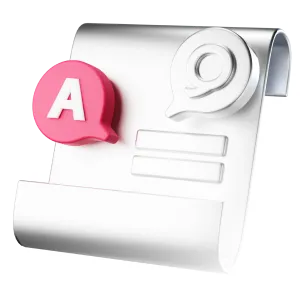You should expect to pay an average of $500 to replace your intake manifold gaskets, but this is a very rough estimate. Replacement prices range from around $350 on the low end to over $2,000 on the high end, mostly thanks to labor costs, but also depending on your vehicle.
How much does it cost to replace your intake manifold gaskets?
A set of intake manifold gaskets on its own is relatively inexpensive. Factory-style gasket sets range from just $20–$70 in most cases, while aftermarket gasket sets can cost over $100.
The labor costs for this repair, however, can be quite expensive. Yelp estimates a fair average labor rate of anywhere from $75 to $125 per hour at an independent auto repair shop while dealerships usually charge $125 to $175 per hour.
Based on those parts and labor numbers, you can ball park around $500 to replace your intake manifold gaskets. Your specific pricing may vary depending on your vehicle and quoted labor costs. We’ve seen rates as low as $350 and as high as over $2,000.
Because the vehicle plays such a big part in determining cost here, I would love to be able to include a comparison of repair cost quotes like we’re supposed to be able to provide via GarageGuard, but I don’t know if that’s possible.
OEM vs. Aftermarket: Which is better for intake manifold gaskets?
Generally, it’s best to stick with original equipment manufacturer (OEM) parts for most repairs. However, some vehicles are more prone to intake manifold gasket leaks than others thanks to their design.
Your mechanic can help you determine if your vehicle is one that would benefit from replacing OEM intake manifold gaskets with re-designed aftermarket gaskets.
How long does it take to replace intake manifold gaskets?
Because there is so much variance between vehicles and what’s required to access the intake manifold gaskets to perform this repair, it’s next to impossible to settle on an overall average. If the gaskets are easily accessed, replacement could take as little as an hour. However, if accessing them requires disassembly of multiple engine components, replacement could take a day or more. Be sure to shop around and get multiple quotes.
How do you know if your intake manifold gaskets need to be replaced?
Your car will exhibit several symptoms that can indicate your intake manifold gaskets need to be replaced. These symptoms include:
- Check engine light
- Rough running engine, lean operation/rough idle
- Engine stalling
- Internal or external coolant leaks
- External oil leaks
- Poor fuel economy
- Engine overheating
How are faulty intake manifold gaskets diagnosed?
Because the symptoms of faulty intake manifold gaskets can mimic symptoms of several other vehicle problems, your mechanic will need to use a smoke machine to diagnose the problem. In these cases, the technician connects the smoke machine to the manifold with the engine off. If smoke leaks from the gaskets, it’s clear it’s time to replace them.
How are faulty intake manifold gaskets replaced?
If you’re very skilled in the garage, you may be able to pull this repair off yourself, but for most, we suggest leaving intake manifold gasket replacement to the professionals. Accessing the gaskets can require a good deal of engine component removal and disassembly, which, if not reassembled properly, can lead to engine damage.
For the gaskets themselves, even a small error—like not properly aligning the gaskets or introducing even a small amount of dirt or grime to the manifold or gasket surface—can lead to significant problems.
Bottom line: Unless you’re a seasoned garage guru, leave intake manifold gasket replacement to the pros.
FAQ
-
Is it safe to drive with an intake manifold gasket problem?
-
How often should I replace my intake manifold gaskets?
-
Can I use gasket sealant instead of replacing my intake manifold gaskets?

Sarah Gray is an insurance writer with nearly a decade of experience in publishing and writing. Sarah specializes in writing articles that educate car owners and buyers on the full scope of car ownership—from shopping for and buying a new car to scrapping one that’s breathed its last and everything in between. Sarah has authored over 1,500 articles for Jerry on topics ranging from first-time buyer programs to how to get a salvage title for a totaled car. Prior to joining Jerry, Sarah was a full-time professor of English literature and composition with multiple academic writing publications.

Kevin Berry is the Senior Director of Content at Jerry and has been working in the digital content space since 2011 across the car insurance/repair, personal finance, travel and sports industries. Prior to Jerry, Kevin was a content team lead at NerdWallet overseeing the Multimedia Production and Travel Rewards teams. Previously, he worked for NBC Sports, Comcast Cable and Nike. He has a Master`s Degree from Arkansas State and a Bachelor`s from Oregon State University.






